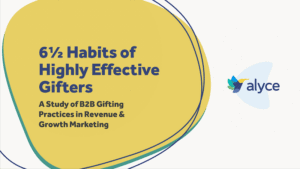The topic for this week’s best practice focuses on the importance of creating meaningful relationships and why it’s time to kill the MQL.
I recently gave a presentation at the CIC in Boston to a room of forward-thinking marketers about the Trap of Using MQLs to Communicate Value. I’ve shared the slides here, but I wanted to share my big takeaway here: if you’re a B2B enterprise SaaS marketer, I think you should kill the MQL.
A bit of background: I led marketing at an enterprise software company for the past 5 years, in a $1M to $40M of ARR run.
If you were like me, then this should feel somewhat familiar:
- It’s easier to build software, so it’s easier for competitors to nip at your heels.
- And those fresh new digital channels that allow us to target our prospective buyers? That’s plateauing. There could be another social media channel this year, but not 3 new ones. People only have so much time in their day to be on another social media channel.
- And then there are those email lists that we’re tiring out by over-blasting them with content marketing campaigns in an attempt to get them to convert on a form so that they become a lead…those lists are getting tired. And with GDPR, a potential liability.
- The lead gen effort feels like we’re pushing a boulder up a hill and then having to push it up the other side.
- The sales team is a bit frustrated because they don’t know what marketing does.
- The lead gen effort isn’t growing as fast as their number is growing.
And MQLs stink.
As marketers, is there any greater disservice than using the MQL to explain our value to the organization? After all, MQLs convert poorly—only about 3% of them turn into customers for the average SaaS company.
There are two major problems with MQLs:
- Nobody outside of marketing has any clue what the value of an MQL is
- At their current conversion rate, you’re more likely to find someone who has a favorable view of a Congressperson (8%).
So why do we do this to ourselves? I think it has something to do with how successful the Marketos and Hubspots of the world were at selling the vision of their product offering. After all, what’s a content marketing effort without lead forms? And MQLs are so scientific—they have a quantitative score—that we forgot that we made up those scores in a kind of non-scientific way.
So I’m not saying we should stop tracking MQLs and using them as a benchmark for some of the successes we’re having.
But if you’re a SaaS company with a product with high average ACV, then isn’t the purpose of marketing to help get into a few hundred accounts each year? And if that’s the case, shouldn’t the success metric be penetration into that handful of accounts, which means creating meaningful relationships between your sales reps and your ideal buyer, rather than “qualified” leads?
I can’t help but think that the spray and pray, broad-based approach that yielded 2% customer conversion missed the point of marketing’s role: help the sales team get into a few hundred high value accounts this year. We were so eager to conquer the universe that we forgot to create real relationships with the few hundred people in the world that mattered to us.
So here’s my thought experiment: what if you needed to just get into 1 customer account—what would you do?
You’d probably research the company to find out what they do and what they’re trying to accomplish this year. You’d figure out who you want to talk to there. You’d look them up on LinkedIn to find out what they care about for their job.
And then you’d go on social media to see what they’re interested in. Gary Veynerchuk talks about the jab, jab, jab, punch approach to using helpfulness as the first several touches.
You might send someone a handwritten note, like or retweet one of their posts and even send them a gift as an up-front thank you for taking the time to chat.
But in our “conquer the universe” mentality we tell ourselves that all we have time to do is group folks by persona and blast out an email of a relatively generic content piece that’s kind of about us and then hope for the best.
That feels backwards. It’s like we’re missing a metric—something like the Qualified Relationship—to let people know that we’re actually doing the things that make someone likely to want to trust us enough to buy from us.
I think we should embrace the things that we know matter and don’t scale well and then figure out to scale them. The bar is low—does anyone sincerely flatter anyone anymore? How many garbage sales emails do we get that show the elevator pitch in the first sentence?
Here’s to those creating real relationships. It’s more of the long game, but for many sales cycles, there’s no such thing as the short game.
And the MQL—let’s never tell sales that that’s all we bring to the table. Because we want to be more popular than Congress.
Photo by rawpixel on Unsplash






